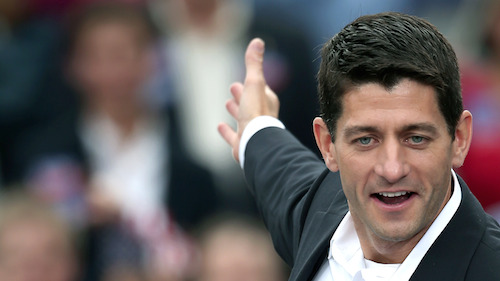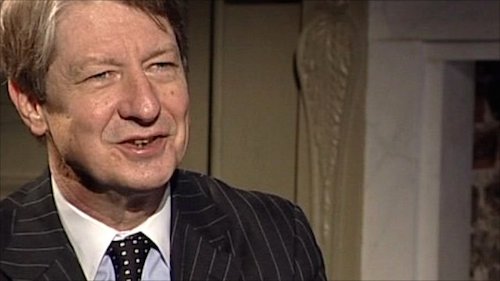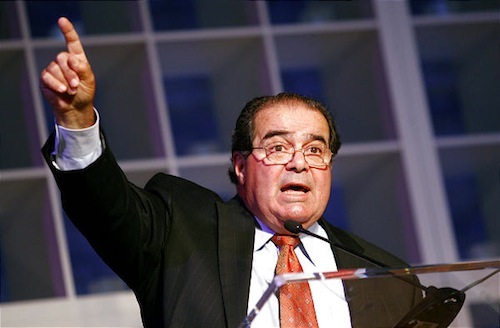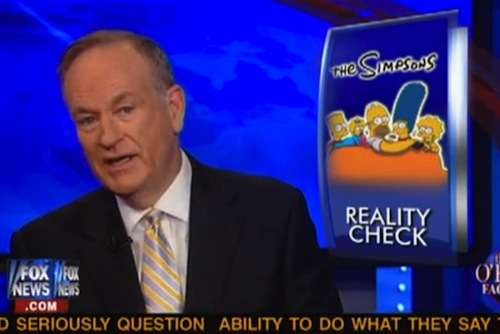After over-composing to make deadline yesterday, I am enjoying my first semi-day off in weeks. While I propagate a culture of laziness and entitlement, how about we check in with a guy who knows all about that stuff from the perspective of righteous election? I refer of course to Paul Ryan, who recently complained that poverty is largely due to people in the inner cities “not even thinking about working or learning the value and the culture of work.” In case this blog post falls into a time machine set for 1954, “inner cities” is futurespeak for “people who are not white.” We need to stop spending money to help them, or this poverty thing might spread to another demographic.
Category Archives: lying
Cato, O’Rourke file theoretically funny amicus in defense of “truthiness”
The Cato Institute and PJ O’Rourke have filed an amicus brief in the Supreme Court case Susan B. Anthony List v. Driehaus, arguing that “truthiness” is an essential part of political discourse. Props to Jacek for the link. Susan B Anthony List is an anti-abortion group that purchased a billboard claiming Ohio congressman Steven Driehaus supported taxpayer-funded abortion because he voted for the Affordable Care Act, which does not provide taxpayer funding for abortions. The claim potentially ran afoul of Ohio’s False Statements Law, which prohibits making false statements about political candidates. There are several reasons why the case is likely to be decided on procedural grounds—not least that Driehaus lost and withdrew his complaint—but Cato and O’Rourke make an interesting point.
How to write an anecdote about welfare
Let’s say it’s April 16th and you hate taxes, because 98% 12% of it goes to social safety net programs, better known as welfare. As everyone knows, most people on welfare don’t even need it. They just don’t want to work, and they probably make more money from lapping at the government teat than you do at your horrible job. The welfare queen has a storied history in American political discourse. We all know she’s out there, and most of us have a pretty good idea what she looks like. The problem is that the poor have so much power in America that specific welfare queens are carefully hidden. An actual person who picks up his food stamps in a limousine is almost impossible to find. So what do you do? Do you wait for the government to create a welfare queen for you? Of course not—you’re a hard-working American, so you make one up yourself.
Antonin Scalia’s reduction to absurdity
Monday in Princeton, Supreme Court Justice Antonin Scalia defended his comparison of anti-sodomy laws to prohibitions against bestiality and murder. Speaking to gay freshman Duncan Hosie—who questioned whether it was appropriate to imply a connection between blowing a dude and shooting the Lone Ranger in order to penetrate his horse—Scalia said that “I don’t think it’s necessary, but I think it’s effective.” See, Justice Scalia only made that argument because it works. “It’s a form of argument that I thought you would have known, which is called the ‘reduction to the absurd,'” he added. “If we cannot have moral feelings against homosexuality, can we have it against murder? Can we have it against other things?” Obviously, the answer is no; if we permit gay marriage, we have to immediately overturn state and federal laws against murder. Differences between that reductio ad absurdum and Scalia’s after the jump.
Is Bill O’Reilly fucking with us?
Those of you both of you who read Combat! blog regularly know that we grapple with a perennial question around here: do demagogues like Michele Bachmann or Bill O’Reilly actually believe what they say? It’s an unanswerable question, like the exact velocity and location of an electron. To know whether a Bill O’Reilly’s insane falsehoods are delusions or lies is, first, to know whether they are actually false, or if we are the ones who are deluded. Even if we mustered the certainty for that, we would have to further parse whether his audience believes him, or if they view the O’Reilly Factor as an ideologically thrilling romp along the lines of Taken—and if we think we’ve pinned that down, we incur the sub-question of whether O’Reilly is participating in the joke or trying to deceive them. Uncertainty of uncertainties—all is uncertainty. Then I saw this.





